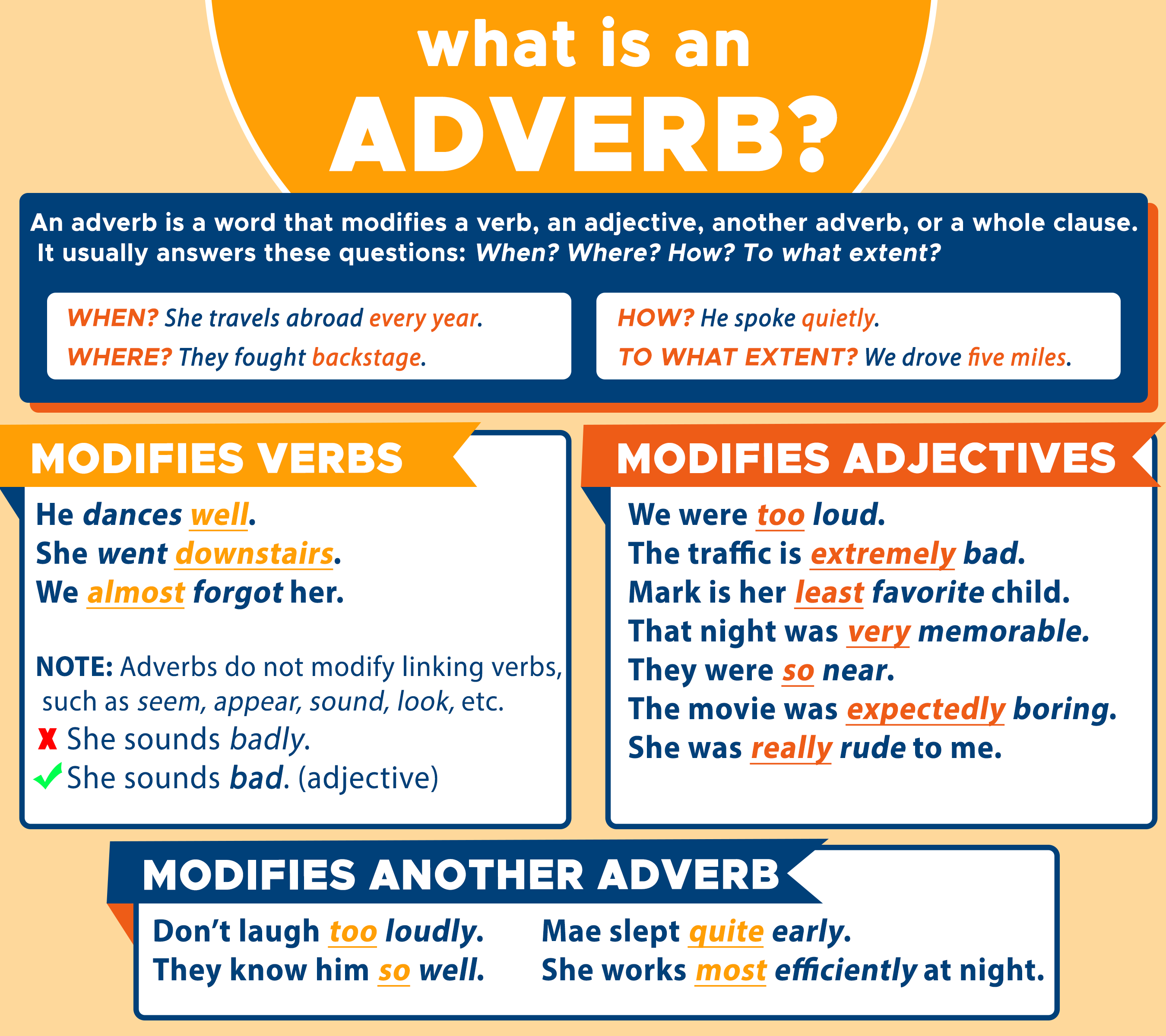

An adverb is a word that modifies the meaning of a Verb an Adjective another adverb. Look at these examples of adverbs of indefinite frequency: 100%Īdverbs of indefinite frequency mainly go in MID position in the sentence. Most adverbs in English are formed by adding -ly to an Adjective. Adverbs may be subdivided into: 1) Adverbs of manner, which tell the manner in which something is done 2) Adverbs of degree, which describe the degree to. Every day, more than five thousand people die on our roads.Sometimes, usually for reasons of emphasis or style, some adverbs of definite frequency may go at the FRONT, for example: The directors meet weekly to review progress.The manager checks the toilets every hour.once, twice, once or twice, three timesĪdverbs of definite frequency, like all adverbs of definite time, typically go in END position.every second, once a minute, twice a year.We separate them into two groups because they normally go in different positions in the sentence. adverb (noun): a word that modifies a verb, an adjective or another adverb, expressing manner, place, time or degree a word that can modify a phrase, clause or sentence. The words in b) describe indefinite frequency. On the other hand, words like often give us an idea about frequency but they don't tell us exactly. Depending on the context, the adverb can. Adverbs tells how, where, when, why, etc. The words in a) describe definite frequency. This gives more information about the verb and about how the action was done. With words like daily we know exactly how often. You probably see a difference between a) and b) above. adverb noun C us / æd.vb / uk / æd. They tell us how often something happens. Grammar : Adverbs : Adverbs of Frequency Adverbs of FrequencyĪdverbs of Frequency are adverbs of time that answer the question "How frequently?" or "How often?".


 0 kommentar(er)
0 kommentar(er)
